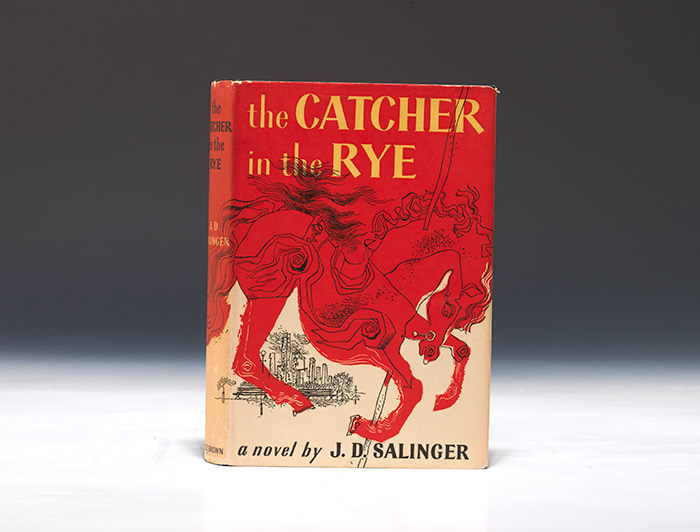If you’re a reader of this website it means you’re probably in to literary things, so it’s likely no stretch on my part to assume you’re aware of the new J.D. Salinger documentary film by Shane Salerno coming out on September 6. It’s aptly called Salinger and it promises “bombshells” (whatever that means). A new biography by Salerno and David Shields, of the same title, is being issued as a companion piece to the film, too.
(Photo above: Weinstein Company)
As a giant J.D. Salinger fan, this is huge news and a very big deal in American letters. He has not published one word since 1965 and we still know next to nothing about what he’d been up to since he retreated to his bunker in New Hampshire. We got rumors that he wrote every day, but he told Betty Eppes in 1980 that “there’s a marvelous peace in not publishing,” meaning we were not likely to see it anytime soon.
Sounds like that’s coming to an end, though. Per the master’s detailed and sequential instruction (reported basically everywhere by now), five new books will be released between 2015 and 2020. One of them is reportedly a manual on Vedanta, the religious philosophy Salinger followed for most of his adult life. The long-heard-of-but-never-before-published “The Last and Best of the Peter Pans” will appear in a volume with other stories about Holden and the Caulfield family (more Phoebe, I hope!).

We’re also going to find out what his beloved Glass family has been up to these past 50 years, as The Family Glass will feature five new stories about the literary whiz-kids. Here’s to hoping we get one or two about the twins Walt and Waker, their big sister Boo Boo, or even their vaudeville parents Les and Bessie. Will Buddy still get the last word? Probably.
But, what’s personally most exciting and potentially monumental are the two books about World War II: one a novella in the form of a counter intelligence officer’s diary entries, the other a full novel set during the War based off Salinger’s relationship with is first wife whom he met while in Germany.
There are already a wealth of books about World War II written by Americans who fought it—Kurt Vonnegut’s Slaughterhouse-Five, Joseph Heller’s Catch–22, John Horne Burns’ The Gallery, James Jones’ From Here to Eternity, Norman Mailer’s The Naked and the Dead, Gore Vidal’s Williwaw—but Salinger has yet to weigh in. Of his four major publications, Nine Stories’ “For Esme—With Love and Squalor” is the only real piece that has World War II as its primary subject, but, in it, details of the war are secondary.
His contribution could be significant, though. As a member of the 12th Infantry Regiment, 4th Infantry Division, Salinger landed at Utah Beach on D-Day, fought through the Battle of the Bulge and the Hurtgen Forest campaign, and was among the earliest troops to enter the Kaufering IV death camp. Like “Sargent X” in “For Esme…” Salinger would go on to suffer a nervous breakdown shortly after V-E Day.
Salinger saw some of the worst of the fighting. He’d reportedly told his daughter that, “you never really get the smell of burning flesh out of your nose entirely, no matter how long you live.” Like all soldiers, they were experiences that never left him, and ones he had to figure out how to live with. He may have given us a hint in Catcher in the Rye, though:
Among other things, you’ll find that you’re not the first person who was ever confused and frightened and even sickened by human behavior. You’re by no means alone on that score, you’ll be excited and stimulated to know. Many, many men have been just as troubled morally and spiritually as you are right now. Happily, some of them kept records of their troubles. You’ll learn from them—if you want to. Just as someday, if you have something to offer, someone will learn something from you. It’s a beautiful reciprocal arrangement. And it isn’t education. It’s history. It’s poetry.
He’d been writing for himself for the past 48 years, maybe even keeping a record of his troubles. With the publication of these new World War II books, we’re one giant step closer to knowing what J.D. Salinger has to offer on the War, and, most importantly, what we can learn from him about it.

